An online National Workshop on ‘Innovations under ATMA for Enhancing Farmers’ Income’ was organized by Centre for Agricultural Extension Policy, PPP and International Centre of Excellence in Agricultural Extension, National Institute of Agricultural Extension Management (MANAGE) on 15 – 16 December 2021. In this blog, the Workshop Coordinators shared their insights from the workshop.
BACKGROUND
Agricultural Technology Management Agency (ATMA) plays a major role in decentralized decision-making at the district level. It is responsible for all the technology dissemination activities in agriculture. It is linked to all the line departments, research organizations, non-governmental organizations and agencies associated with agricultural development in the district. Furthermore, Research and Extension units within the project districts, such as Zonal Research Stations (ZRS) or substations, Krishi Vigyan Kendras (KVKs) and the key line Departments of Agriculture, Animal Husbandry, Horticulture and Fisheries, etc., are the constituent members of ATMA.
However, low budgetary provision for extension, inadequate manpower, overlapping of works, inadequate convergence, deficient follow up on the recommended technologies, its performance analysis, etc., are posing challenges for ATMA in its attempts at carrying out extension activities effectively. Also, evidence suggests that lack of independence in ATMA, coupled with increased paperwork, lack of time for field visits, reduced knowledge of scientific agriculture among ATMA professionals, subsidy-/input-based extension services have failed to reflect the demands of the agrarian community in the country.
At the same time, despite the aforementioned challenges, several innovations in agriculture, technology, practices and services are happening in ATMA. Therefore, as per the Report of the Committee on Doubling Farmers’ Income by the Dr. Ashok Dalwai Committee, ATMA should be the platform for convergence and service delivery of all schemes and programmes for agricultural development at the district level and below. Further, there is a need for creating awareness among the officials of ATMA about the novel and innovative approaches and strategies that have evolved in agricultural extension in the recent past. This will enable them to adopt the innovations into their extension activities and effectively reach out to the farmers.
In keeping with this, the National Workshop on ‘Innovations under ATMA for Enhancing Farmers’ Income’ was organized on 15 – 16 December 2021, to identify, document and disseminate successful innovations and agri-extension strategies by different ATMAs across the country. Further, the challenges faced by ATMA officials and suggestions on how to overcome these challenges were elicited. In his introductory remarks, Dr. Mahantesh Shirur, Deputy Director (Agricultural Extension), Centre of Excellence in Agriculture Extension Policy, Public Private Partnership-PPP and International Centre of Excellence in Agriculture Extension, mentioned the rationale and objectives of the workshop and discussed the methodology of the workshop to realize the expected outcome from the workshop.
DESIGN OF THE ONLINE WORKSHOP
The two-day workshop programme had four sessions daily – two in the forenoon (10.15 AM to 11.30 AM and 11.30 AM to 01 PM) and two in the afternoon (2 PM to 4 PM and 4 PM to 5 PM). A total of nine thematic areas were selected based on ATMA activities in order to address the overall objectives of the workshop.
THE KEY TAKEAWAYS
Overview of ATMA, Opportunities and Challenges
Dr. K.M. Singh (Dean, PG College of Agriculture, Dr. Rajendra Prasad Central Agricultural University, Samastipur, Bihar) delivered the session on ‘Overview of ATMA, Opportunities and Challenges’ that emphasized on changing agricultural development goals, shifting dynamics of the global food system, problems affecting the National Agricultural Research and Extension Institutions, changing paradigms in Strengthening Agricultural Extension System, etc. Dr. Singh asserted that public extension should give higher priority to process innovations that will enable small farm households to increase their income. Natural Resource Management (NRM) practices must also be prioritized by public extension, and in order to achieve these institutional changes, the speaker listed important measures for public extension systems to become more decentralized, farmer-led and market-driven.
Innovations in promoting Farmer Organizations/Commodity Interest Groups
The session on ‘Innovations in promoting Farmer Organizations/Commodity Interest Groups’ was conducted by Dr. K.C. Gummagolmath (Director, Monitoring and Evaluation, MANAGE) on Farmer Producer Organizations (FPOs). He briefly explained the process of FPO formation and legal provisions for FPOs. Next came the session on forming farmers’ federations which was delivered by Shri Yogesh Thorat, (Managing Director, Maha Farmer Producer Company-FPC, Pune, Maharashtra) wherein he elucidated the advantages of having farmer federations. The innovations in promoting FPOs also includes converting social capital into financial capital. This necessitates a state-level promotion from National Institute of Agricultural Extension Management (MANAGE) to the government. Dr. Sanat Mishra (Senior Scientist, Department of Planning, Monitoring and Evaluation-DPME, Orissa University of Agriculture and Technology-OUAT, Odisha), also stressed the importance of Farmer Groups and Organizations for Agro-Enterprise Management. Shri P.L. Kathiresan (Deputy Project Director, ATMA-Sivangangai, Tamil Nadu), explained how the Shivangangai Cooperative is coming up as an FPO and is exporting coconut and coconut processed products to foreign countries. This demonstrates how ATMA takes activity at the most fundamental level and transforms it.
Innovations in promoting Market Led Extension in Districts
Dr. Manas Ghosh, Director, State Agricultural Management and Extension Training Institute-SAMETI, West Bengal, initiated the session on ‘Innovations in Promoting Market Led Extension in Districts’, which focused on Market Led Extension. He concluded that while rice cultivation was previously done in three seasons, vegetable cultivation is now carried out in a large part of West Bengal. Farmers are also growing sunflower, other oilseeds and doing poultry farming, dragon fruit farming, and bankul farming to a large extent as it is promoted through ATMA as a response to market demand in the region.
|
Box 1: Case study of pomegranate farming in Barmer region, Rajasthan |
Shri Govindreddy Jayannavar (Block Technology Manager (BTM), ATMA, Belagaum, Karnataka), spoke of ‘Market Led Extension’ initiatives through various activities such as the formation of FPOs under ATMA, the promotion of Oil Palm Cultivation PPP model under ATMA, where efforts were made to support the farmers through marketing, thereby helping to increase their incomes. ATMA also supports Cashewnut farmers by replacing crops that are more demanding on resources but offer less income to farmers. Other areas of intervention include sensing demand for FPOs’ processed products; the promotion of Sandalwood by training, nursery plantation, marketing, etc., for farmers. ATMA, Belagavi, also featured four different success stories and booklets to disseminate market led extension initiatives and farmer success stories and distributed it among farmers.
Innovations in promotion of Farmer Friend/Agripreneurs/Farm School
The session on ‘Innovations in promotion of Farmer Friend/Agripreneurs/Farm School’, focused on various objectives of this theme such as exposure visits, trainings, and demonstrations, was delivered by Dr. Aman Keshav (Project Director, ATMA, Faridkot, Punjab). Farmers have shifted away from paddy cultivation and embraced cotton and basmati rice farming. ATMA Kisan Bazaar is held at the ATMA Kisan Hut at the ATMA Center. The machines were also made available to farmers at ATMA Machinery Custom Hiring Centers.
Dr. Amrik Singh, Agriculture Officer, Pathankot, Punjab, continued the session by drawing attention to Farmers’ Friend, Farm School, use of social media, and farmer led extension. Under ATMA, zero straw burning of paddy was recorded in Pathankot district after awareness from Farmers’ Friends and Farm Schools, and the session was concluded by Shri G.S.V. Amuthan, Deputy Director of Agriculture-DDA, Tallakulam, Tamil Nadu.
Innovations in Climate Smart Strategies and Innovations in ICT Applications
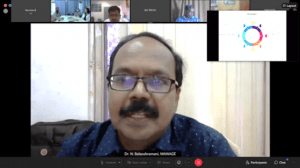 The session on ‘Innovations in Climate Smart Strategies and Innovations in Information and Communication Technologies (ICT) Applications’ was initiated by Dr. N. Balasubramani (Director, Climate Change and Adaptation-CCA, MANAGE, Hyderabad) who focused on strategies for promoting Climate Smart Agriculture (CSA) through ATMA. He also discussed Prime Minister Narendra Modi’s five CSA commitments, the impact of climate change on crop yield, Strategic Research and Extension Plan (SREP) with a climate lens, and doubling farmers’ income.
The session on ‘Innovations in Climate Smart Strategies and Innovations in Information and Communication Technologies (ICT) Applications’ was initiated by Dr. N. Balasubramani (Director, Climate Change and Adaptation-CCA, MANAGE, Hyderabad) who focused on strategies for promoting Climate Smart Agriculture (CSA) through ATMA. He also discussed Prime Minister Narendra Modi’s five CSA commitments, the impact of climate change on crop yield, Strategic Research and Extension Plan (SREP) with a climate lens, and doubling farmers’ income.
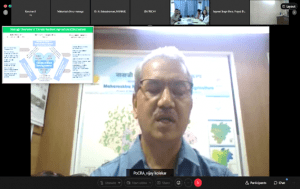 Dr. Vijay Kolekar, Agronomist, Project on Climate Resilient Agriculture (POCRA), Government of Maharashtra, concluded the session. He spoke about improving water security, soil health and seed quality. He also shared various approaches that were used for climate resilient agriculture, such as climate vulnerability assessment of villages, community involvement in planning, execution, and monitoring; crop planning based on Water Balance Assessment of villages; demand driven and market led extension; reducing digital exclusion; and convergence with other schemes.
Dr. Vijay Kolekar, Agronomist, Project on Climate Resilient Agriculture (POCRA), Government of Maharashtra, concluded the session. He spoke about improving water security, soil health and seed quality. He also shared various approaches that were used for climate resilient agriculture, such as climate vulnerability assessment of villages, community involvement in planning, execution, and monitoring; crop planning based on Water Balance Assessment of villages; demand driven and market led extension; reducing digital exclusion; and convergence with other schemes.
In his remarks, he emphasized upon the importance of promoting integrated farming systems to increase resilience through goat rearing, sericulture, apiculture, and inland fishery. He also mentioned POCRA initiatives carried out by digital innovations at the village level (Micro-Level Planning-MLP app, Geographic Information System-GIS dashboard, Direct Benefit Transfer-DBT portal, Farmers’ Field School-FFS app), under Project Director, ATMA (FFS app, training app, and FPO DBT module), and project management units at the district and state levels (MLP app, GIS dashboard, DBT portal, training app, Finance Management System-FMS and Task Monitoring App-TMA).
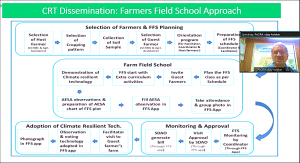
Innovations in Gender Mainstreaming
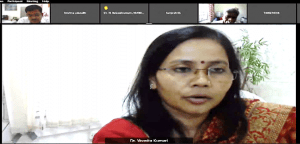 Dr. Veenita Kumari, Deputy Director (Gender Studies), MANAGE, Hyderabad, and Dr. T Subhadra, Additional Director of Agriculture-ADA, SAMETI, Tamil Nadu, led the session on ‘Innovations in Gender Mainstreaming’. The session highlighted the importance of women’s decision-making in the agricultural sector, and how Self-Help Groups (SHGs) and economic empowerment contribute to women’s empowerment.
Dr. Veenita Kumari, Deputy Director (Gender Studies), MANAGE, Hyderabad, and Dr. T Subhadra, Additional Director of Agriculture-ADA, SAMETI, Tamil Nadu, led the session on ‘Innovations in Gender Mainstreaming’. The session highlighted the importance of women’s decision-making in the agricultural sector, and how Self-Help Groups (SHGs) and economic empowerment contribute to women’s empowerment.
Innovations in convergence of institutional efforts, effective implementation of SREP, Promotion of Public Private Partnership (PPP)
Dr. M.J. Chandre Gowda, Principal Scientist, Indian Council of Agricultural Research- Agricultural Technology Application Research Institute (ICAR-ATARI), Bangalore, Dr. Manas Ghosh, Director, SAMETI, West Bengal, Dr. G.L. Chawla, Project Director, ATMA, Bhilwara, Rajasthan, and Shri Hans Raj Mishra, Block Technology Manager (BTM), Garhwa, Jharkhand, conducted the seventh, eighth, and ninth sessions consecutively on ‘Innovations in convergence of institutional efforts, effective implementation of Strategic Research Extension Plan (SREP). The session concluded that PPP can realize its potential with the help of a collaborative approach, especially on how Project Director (PD) and ATMA can work together to increase the farmer’s income. Therefore, we have to say that convergence is critical to ATMA’s success.
A survey was conducted during the workshop among the participants on constraints and suggestions for ATMA so as to identify and implement innovations under ATMA. The important constraints and suggestions from the complete list of the survey are presented below (the complete results of the survey are yet to be published):
| Constraints | Suggestions |
|
i. Delay in funds release ii. Inadequate financial support iii. Lack of technical employees iv. Lack of field training facilities v. Lack of transportation facilities vi. Poor infrastructure for conducting trainings |
i. The funds should be released on time. ii. The vacancies should be filled on time. iii. Salaries should be given to employees on time. iv. Construction of proper main offices, ATMA building in each district. v. One training programme should be organised with ATMA-KVKs scientists every month. vi. Proper vehicles should be provided to all the officials working under ATMA. |
THE WAY FORWARD
Dr. P. Chandra Shekara, DG, MANAGE, Hyderabad, delivered the closing remarks, by complimenting the Principal Coordinator, DAESI, and team for being punctual and organizing a successful workshop. ATMA, as the heart and brain at the block and district levels, should connect food security groups to sorting and grading activities, which will then go on to become a good ATMA player. As ‘Over The Top’ (OTT) platforms emerge and all TV channels can be viewed on mobile devices, ATMAs should make greater use of mobile phones by effectively sharing photographs, success stories and best practices with other ATMAs. Two announcements were made by DG, MANAGE, namely, the ATMA bulletin will be launched in April 2022 because it will be cost effective, time efficient and will reach ATMs, BTMs, PDs, and DPDs every month, thereby extending knowledge and best practices from one ATMA to another ATMA. The second announcement was about organizing monthly webinars on each of ATMA’s guiding principles in order to strengthen PPP in the country. Dr. Mahantesh Shirur, Course Director of the workshop thanked Dr. P. Chandra Shekara, for his vision and guidance for organizing such an informative workshop.
END NOTE
At the end of the workshop, all the participants were requested to give their feedback on the effectiveness of the workshop and share their problems and suggestions for strengthening extension strategies through ATMA. The workshop was reported as extremely beneficial to all participants and officials, and many of the innovations discussed were critical for several other districts. The participants comprised of Block Technology Managers (159), Assistant Technology Managers (238), Project Directors (36), Deputy Project Directors (63), officials representing KVKs (18), National and DAESI facilitators (47), and others including non-agricultural officials (39) who are potentially the immediate users of the knowledge deriving from the workshop. The participants also requested more such workshops in the future that could help them implement innovations through a cafeteria of activities under ATMA.
 Dr. Mahantesh Shirur, Deputy Director (AE) and Head, Centre for Agricultural Extension Policy, PPP and International Centre of Excellence at National Institute of Agricultural Extension Management, MANAGE, Hyderabad. (E-mail: maha.shirur@manage.gov.in)
Dr. Mahantesh Shirur, Deputy Director (AE) and Head, Centre for Agricultural Extension Policy, PPP and International Centre of Excellence at National Institute of Agricultural Extension Management, MANAGE, Hyderabad. (E-mail: maha.shirur@manage.gov.in)
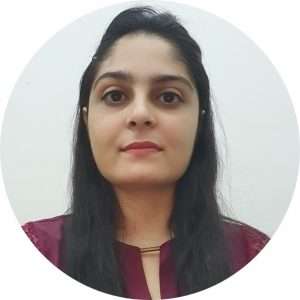 Dr. Manisha Ohlan is Consultant, DAESI, National Institute of Agricultural Extension Management, MANAGE, Hyderabad. (E-mail: manishaohlan1@gmail.com)
Dr. Manisha Ohlan is Consultant, DAESI, National Institute of Agricultural Extension Management, MANAGE, Hyderabad. (E-mail: manishaohlan1@gmail.com)
 Ms. Kanchan Bhagwat, Consultant, DAESI, National Institute of Agricultural Extension Management, MANAGE, Hyderabad. (E-mail: 24kbhagwat@gmail.com)
Ms. Kanchan Bhagwat, Consultant, DAESI, National Institute of Agricultural Extension Management, MANAGE, Hyderabad. (E-mail: 24kbhagwat@gmail.com)
 Dr. Naveen Kumar Gattupalli, Consultant, DAESI, National Institute of Agricultural Extension Management, MANAGE, Hyderabad. (E-mail: naveenkumargattupalli@gmail.com)
Dr. Naveen Kumar Gattupalli, Consultant, DAESI, National Institute of Agricultural Extension Management, MANAGE, Hyderabad. (E-mail: naveenkumargattupalli@gmail.com)

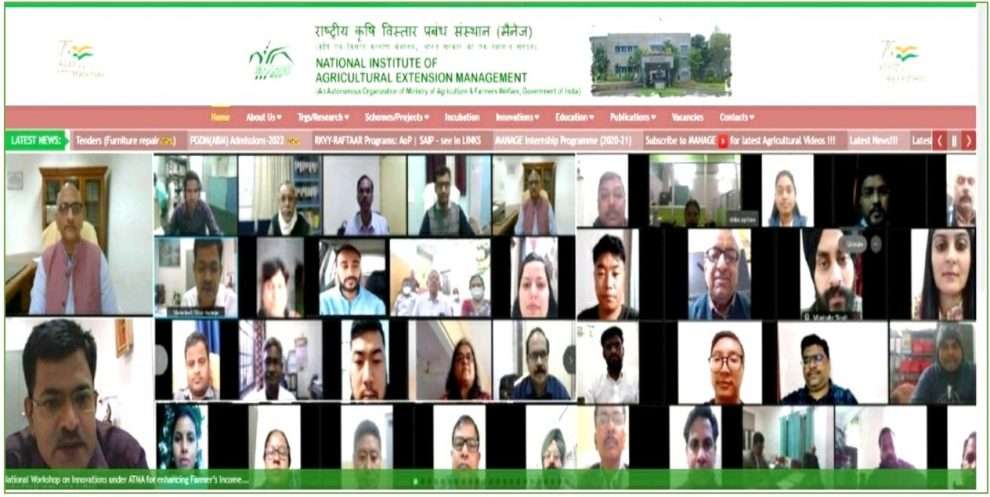
 “The total land area under pomegranates cultivation in Rajasthan is 18,000 hectares. Out of this, Barmer’s share is over 45 percent at around 8,000 hectares,” told Dinesh Prajapat, a senior NABARD official. Pomegranate farming is currently taking place on 9000 hectares of land. Additionally, 200-250 tonnes of pomegranate are exported to other countries, generating a revenue of INR 5 crores. Farmers, around 7671 of them, are also cultivating figs, dates, and ber (jujubes in English) (2019-20). As a result, farmers have shifted from subsistence farming to pomegranate farming, and ATMA has facilitated several horticulture farming projects in the district as a means of promoting market led agriculture that helps in diversifying to commercial crops.
“The total land area under pomegranates cultivation in Rajasthan is 18,000 hectares. Out of this, Barmer’s share is over 45 percent at around 8,000 hectares,” told Dinesh Prajapat, a senior NABARD official. Pomegranate farming is currently taking place on 9000 hectares of land. Additionally, 200-250 tonnes of pomegranate are exported to other countries, generating a revenue of INR 5 crores. Farmers, around 7671 of them, are also cultivating figs, dates, and ber (jujubes in English) (2019-20). As a result, farmers have shifted from subsistence farming to pomegranate farming, and ATMA has facilitated several horticulture farming projects in the district as a means of promoting market led agriculture that helps in diversifying to commercial crops.
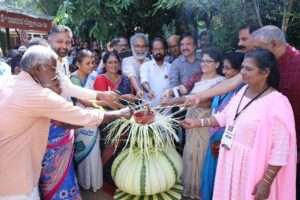

Nice to note several innovations in ATMA functioning and service to farmers. Cross learning across ATMA’s should be more and more for better and faster performance. Good attempt to draft the outcome from the webinar and share it among the concerned.